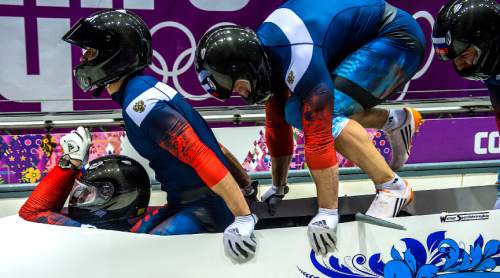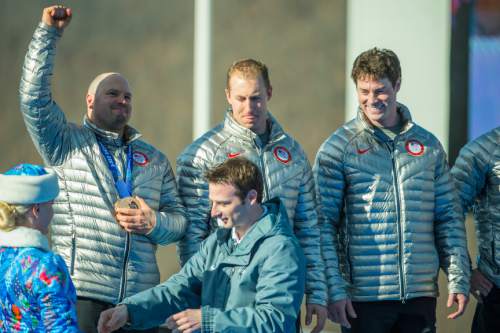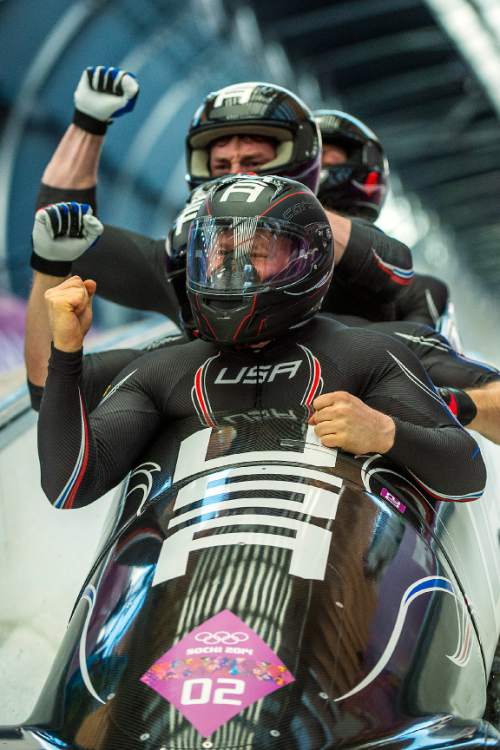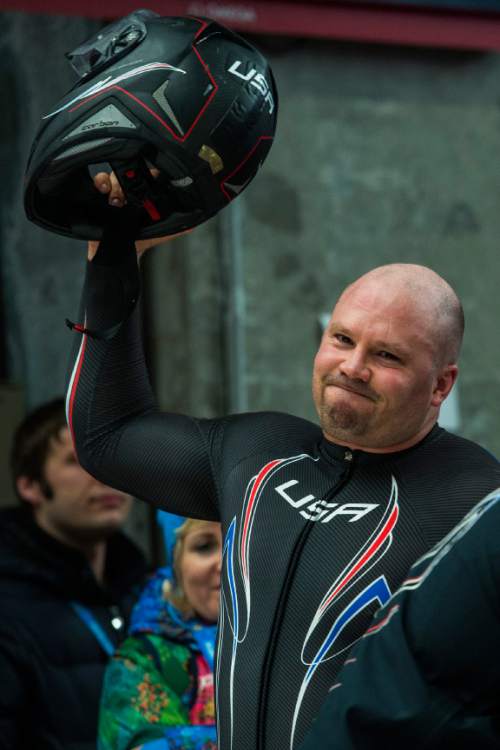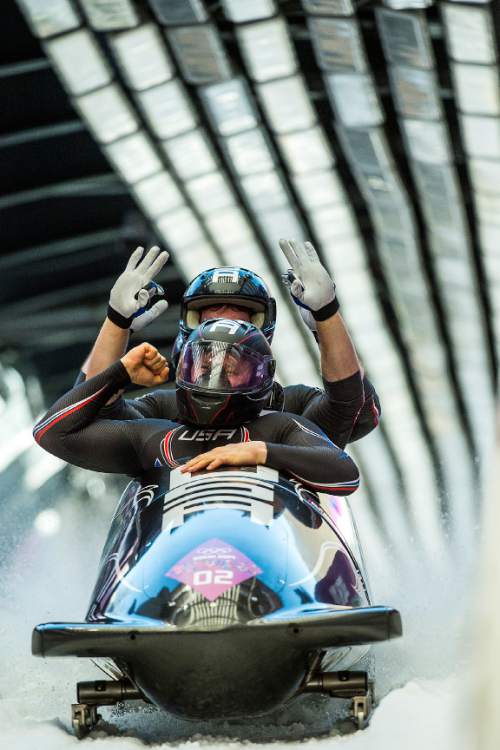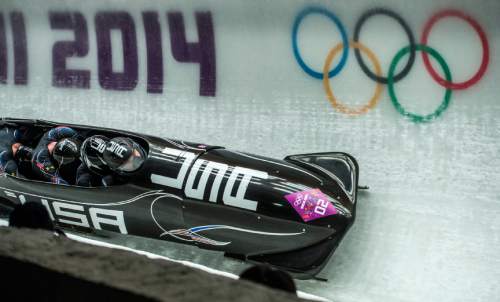This is an archived article that was published on sltrib.com in 2016, and information in the article may be outdated. It is provided only for personal research purposes and may not be reprinted.
Noah Hoffman straps on his skis and sets off on the remaining late spring snow on Mount Bachelor. The first training camp of the year is underway in Bend, Ore., where the 26-year-old cross-country skier and other Americans prepare for a World Cup season several months away.
This training camp has been overshadowed by conversations that won't quit. On Tuesday, Hoffman received a news alert that the U.S. Justice Department had opened its own investigation into allegations that the 2014 Olympic Winter Games in Sochi, Russia, were tainted by a series of state-led doping rings by the hosts.
A native of Aspen, Colo., Hoffman now calls Park City home. Two years ago, he competed in Sochi, finishing 26th in the 50-kilometer cross-country mass start event on the final day of the Games. Russian Alexander Legkov won on Feb. 23, 2014, honored in the closing ceremony that night with a gold medal draped around his neck.
Legkov is one of several Russian Olympic stars at the center of a sweeping investigation by The New York Times unveiled on May 12. The former head of Russia's anti-doping laboratory told the Times that he was directed by the Russian government to help athletes use illegal performance-enhancing substances — and later avoid detection — to ensure success in Sochi.
Despite the extreme detail of the reports, Hoffman says that the allegations against his peers have yet to be proven — but he didn't shy away from voicing his opinion.
"It makes my life easier, because if it turns out that I was trying to do this against people who weren't doing it all naturally; now maybe I have a little bit less far to go," said Hoffman, who finished one minute and nine seconds behind Legkov in the 50k event. "I still need to figure out how to make that jump, but at least it makes it seem more achievable."
Dr. Grigory Rodchenkov told the Times that Russian anti-doping experts replaced urine samples tainted by performance-enhancing drugs with clean urine that would eventually be ready for testing the following day. Rodchenkov estimated that the number of samples swapped by the end of the Sochi Games reached triple digits.
"People are celebrating Olympic champion winners, but we are sitting crazy and replacing their urine," he told the Times.
Four years prior to Sochi, Russia finished sixth in the overall medal count in Vancouver. On home soil in 2014, Russia cruised, finishing with five more than the second-place United States.
"It makes me sad that there's so many reasons to be skeptical about sports, and there's a reason to be turned off in endurance sports," Hoffman said. "There's essentially a way to cheat in every arbitrary competition, more or less."
Since the news broke last week, Steven Holcomb has been on the phone daily with print and radio journalists from around the country. He's sat down for TV interviews, bouncing from New York City to Los Angeles before ending up in Johnson City, Tenn., where the 36-year-old Park City-raised bobsled driver — and Olympic gold medalist — has started his own training.
Another prominent athlete named in the outline of the alleged doping plan was Alexander Zubkov, the Russian bobsled driver who won two golds in Sochi. Holcomb, a gold medalist at the 2010 Games in Vancouver, won two bronze medals in Sochi. He could stand to have both elevated to silver should athletes named be stripped of their medals. Like Hoffman, Holcomb reiterated that the allegations remain only that.
"There are athletes out there that finished in fourth place that missed out on a bronze and they missed the opportunity to stand on a podium, they missed out on sponsorship opportunities right after [Sochi], they all missed out on potentially millions of dollars," Holcomb said. "That's not right."
When the World Anti-Doping Agency (WADA) published a report in November first accusing Russia of conceiving an in-depth doping scheme, Holcomb heard that 12 bobsledders were part of the list of athletes investigated. So the news on May 12 wasn't "totally unexpected," he said.
"It's shocking and disappointing," Holcomb said. "I know Alexander Zubkov. I consider us friends and he's been a decent guy to me. It would be really disappointing to hear he's been cheating me the whole time."
A day after the initial report from the Times, both Zukbov and Legkov vehemently denied the allegations of doping that might have aided in their gold medals in Sochi. Zubkov called the Times story "simple lunacy," according to The Associated Press.
"You'd have to be a complete kamikaze to do that in Russia if you're an athlete representing our nation," Legkov later added.
Holcomb said the advantages of performance-enhancing drugs in a sport like bobsled can range from an increased offseason training load, to lifting more weights, running faster and recovering from workouts faster than normal.
Holcomb says WADA "needs to make a decision. I feel bad for all the athletes in Russia that are getting lumped into this. Again, these are still allegations. But this is an Olympic Games. This isn't pickup softball here. This is what everyone is shooting for."
Hoffman will continue training in Oregon throughout the summer before returning to Utah in the fall to prepare for the World Cup season. As much darkness hovers over the Olympics, Hoffman has found some perspective and reason for optimism.
"As opposed to being discouraging when athletes are doping, it almost feels like these organizations that are cracking down on dopers are helping me because they're bringing people back down to the level that they can actually be beaten," he said.
Twitter: @chriskamrani


